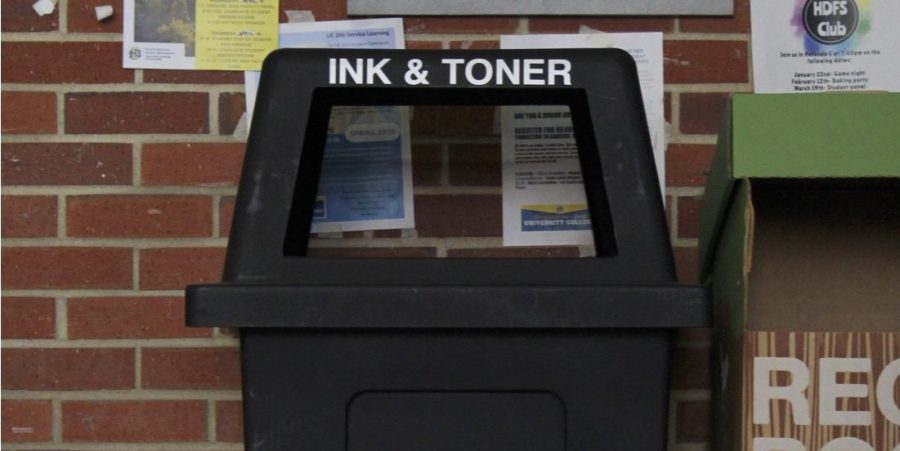Have you ever had an old TV, cell phone or computer you needed to throw out? This type of trash is known as e-waste.
E-waste, short for electronic waste, is basically any trash that has an electronic component, sustainability specialist Jennifer McLaughlin said.
This kind of waste is a part of everybody’s lives. Every time you upgrade your phone, accidentally scratch your TV or spill coffee on your computer and need a new one, you are generating e-waste. Knowing the effects of the waste, and what to do with it, is important.
Two percent of the trash in America’s landfills is made up of e-waste, however, it accounts for 70 percent of overall toxic waste. Every year, 20 to 50 million metric tons of e-waste is thrown away.
“E-waste contains a variety of heavy metals, including, lead, mercury, cobalt, nickel, titanium and chromium,” said Gary Yarrow, SDSU director of environmental health and safety.
If these metals are improperly disposed of and end up in a landfill, they can cause underground water to become contaminated. They can also damage the atmosphere by releasing toxic chemicals.
Almost every material in e-waste is recyclable, which is why it is critical to view it with as much importance as recycling paper, plastic, glass and other components, Yarrow said.
Yarrow’s office, which is located in Avera 143A, handles all e-waste generated by SDSU. For now, his office serves as a spot where students can drop of their end-of-the-semester e-waste, but SDSU is looking to establish a more permanent location to dispose of it.
Within the community, there are drop-off sites at First Bank and Trust, Brookings Regional Landfill, Radioshack and Goodwill. Many phone companies will also take used phones for resale or recycling.
Once the waste is collected, it is sent to a vendor in South Dakota that breaks down the components.
“All parts are recycled, including the plastics and metals. Computer chips are removed, tested and sent to remanufacturers and even the screws that hold everything together are collected and sent back to companies,” Yarrow said.
Often times, the parts are remade into new computer components.
With spring cleaning and move-out weekend approaching, it is especially important to remember to recycle old electronics.
“It’s not just a local problem, it’s global,” Yarrow said. “And as an institution that should be a leader in environmental issues, we cannot let the materials turn into an environmental hazard.”


























